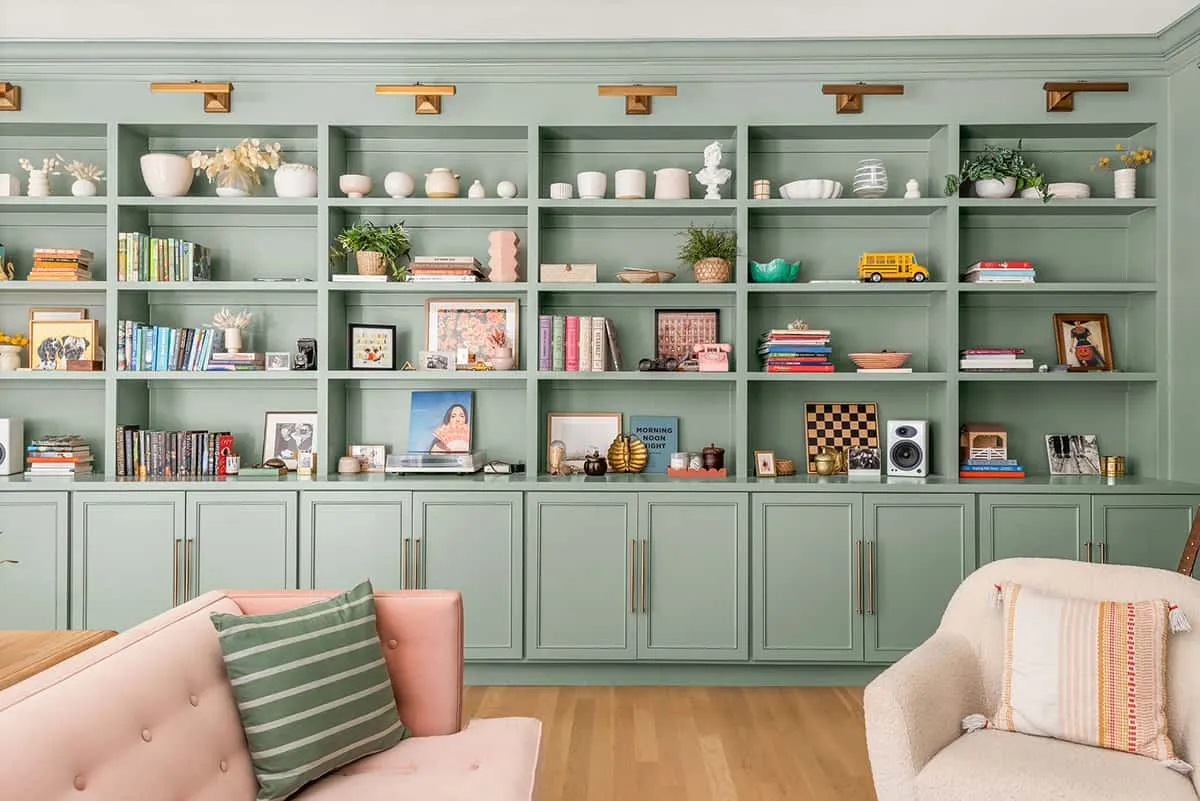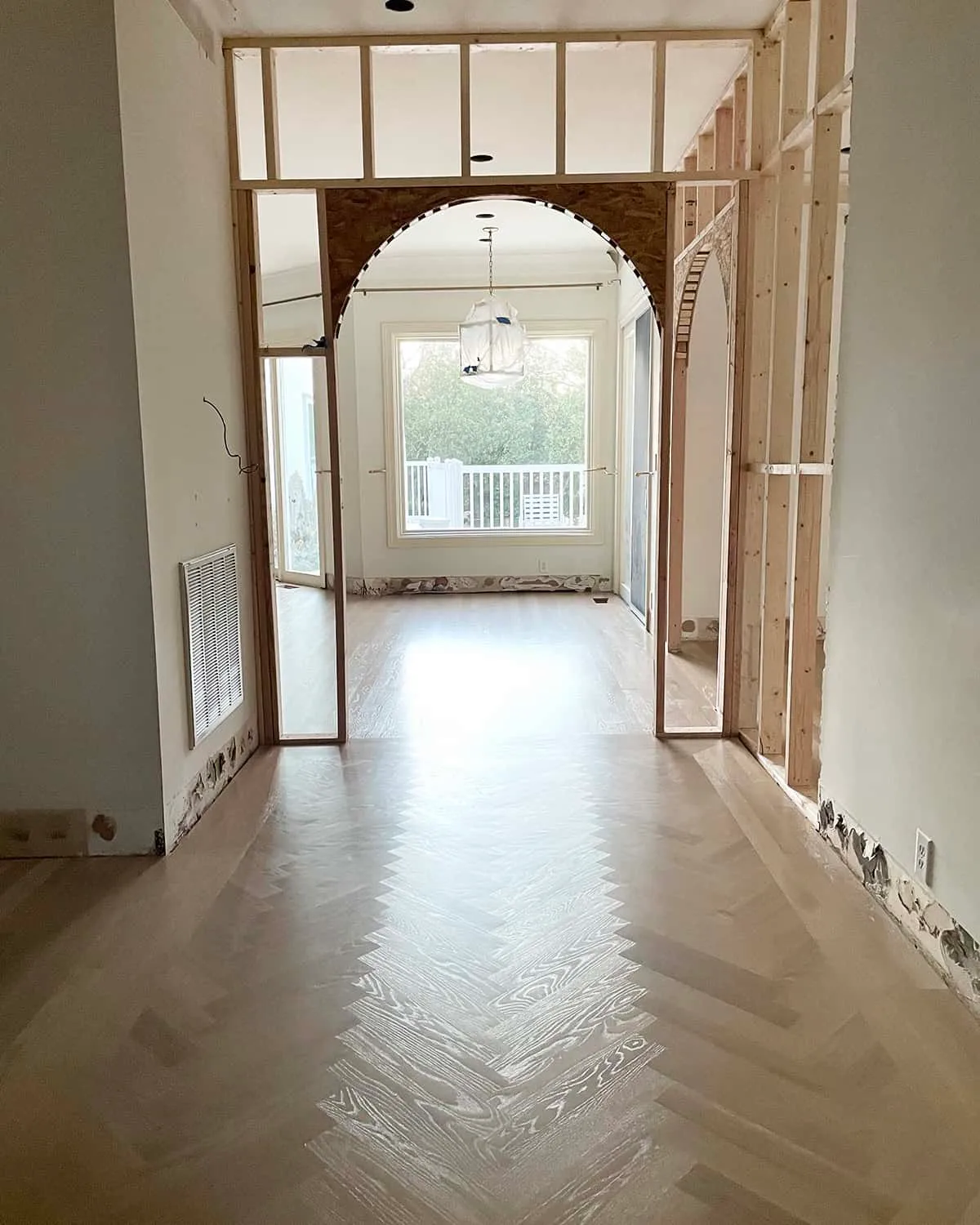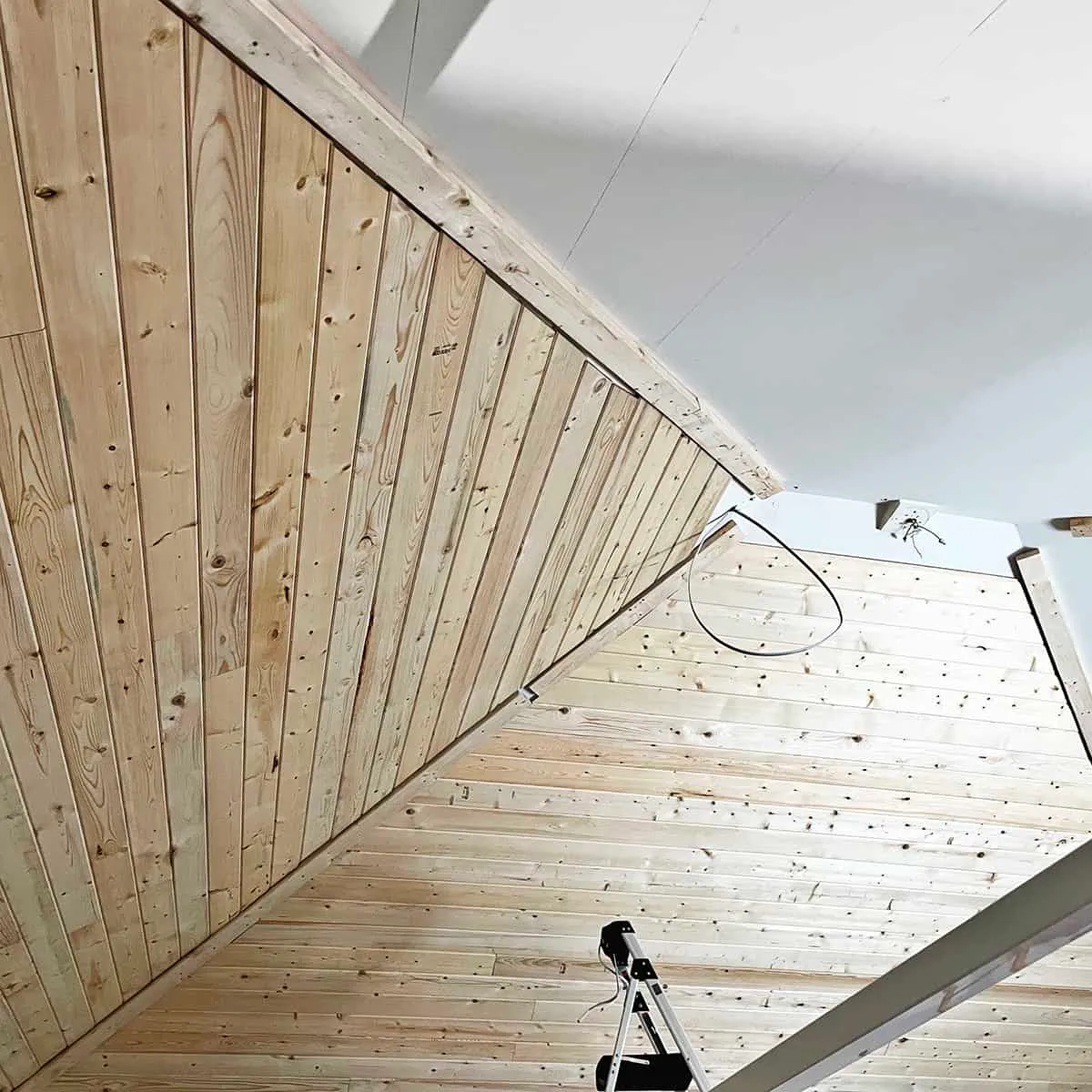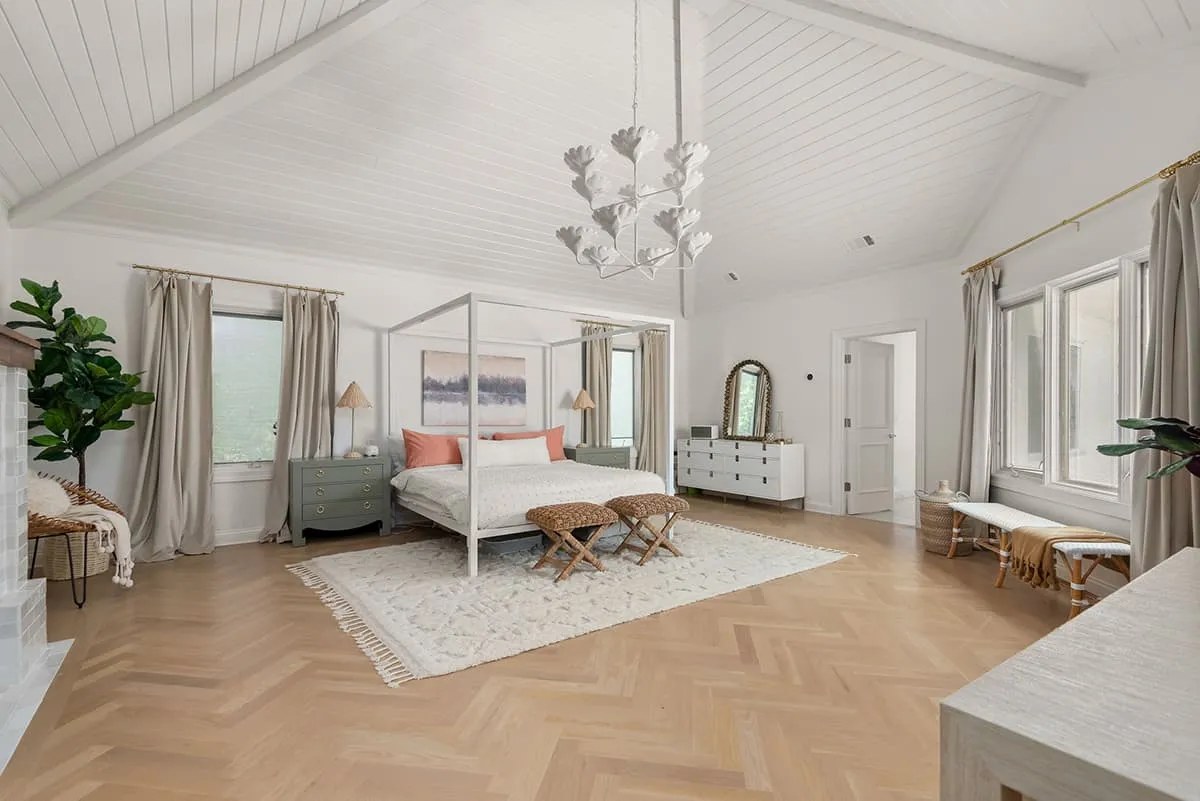
For years, one of the questions I get asked the most is, “How do you find a good contractor?” It’s a big topic, and I’ve often wondered where to start.
We’ve been renovating homes almost non-stop for the past 10 years. We’ve made our fair share of mistakes and learned a lot along the way. In this post, I’ll share my personal tips for finding reliable contractors and how to manage them yourself.
I’ll also walk you through how I find new contractors and get the most accurate quotes. Renovating has been such a joy for me, and I’m excited to help make your first experience as smooth as possible.

General Contractors vs. Tradespeople
A general contractor is like a project manager who handles all the work being done on your home. So, for most projects—like a kitchen or bathroom remodel—if you want to hire just one person to take care of everything, you’ll need a general contractor.
It’s pretty rare for a contractor to do an entire renovation solo (plus, it would probably take longer). A general contractor plans your project, hires the necessary tradespeople, sometimes buys the supplies, and checks in regularly to make sure everything’s on track.
A tradesperson specializes in one area. For example, even for a small bathroom reno, you might need a tile expert, a wallpaper installer, a plumber, and an electrician.
I recommend looking for tradespeople who specialize in one trade, as they’re often the most skilled. Always work with licensed contractors, especially for essential tasks like electrical and plumbing work.
The Pros and Cons
The perk of hiring a general contractor is that they manage the project for you, which can save you a lot of time, especially if you don’t know where to start. If a problem comes up, like someone not showing up, it’s their job to handle it. And you’ll get one quote that covers everything, so it’s easier to figure out the total cost upfront. However, their services do cost money. Your overall budget might be at least 20% higher or more.
With tradespeople, the downside is hiring and managing them yourself, which can be time-consuming. But if you’re willing to put in the effort, you could save a lot on your budget.
My Personal Preference
When we first started renovating, we worked directly with tradespeople because it was the only option that fit our small budgets. Over the years, I got more familiar with the process and comfortable being the project manager. Now, I prefer working directly with tradespeople for most small projects. It’s cheaper, faster, and I can be honest right away when something’s not going as planned.
For bigger projects that I’m not experienced in, I’d still hire a general contractor. You could even take a hybrid approach—hire a general contractor but use your own painter or flooring person to save some money.

Tips for Hiring a Contractor or Trades
Here’s how I’m currently looking for a general contractor for some big projects in our new home:
- Ask around in your neighborhood for trusted teams that work there a lot.
- Look for contractors in the medium price range. They’re usually the best value. If a price is shockingly low, be cautious.
- Get specific trade recommendations from people in your area. Do you have a plumber you like?
- Ask people who have renovated in the past five years: Would you hire them again? What are their strengths and weaknesses?
When interviewing contractors, remember you’re also interviewing them to see if they’re a good fit for you. Here are some questions to consider:
- Can they show you photos of similar projects they’re proud of?
- Can they provide references or arrange for you to see their work in person?
- What precautions do they take to keep projects on budget?
- What hidden costs do they foresee?
- What’s their usual timeline, and how can you keep the project on schedule?
Try a Test Project
If possible, hire a contractor for a smaller project before committing to a big renovation. This way, you can make sure you like their work and work well together.
A Pep Talk for Women
Navigating sexism can be a challenge as a woman hiring mostly male contractors and tradespeople. Some might initially assume your husband is in charge. Here’s what helps me:
- Make it clear that you’re the one in charge.
- Come prepared for meetings to show you know what you’re talking about.
- Use lots of photos to communicate your design choices and stand firm on your preferences.

Preparing to Get a Quote
When we first started, I got ghosted by contractors a lot. I wasn’t prepared or clear about what I wanted, and I didn’t share my budget. Come prepared to your first meeting:
- Have sketches of how you want your project to look.
- Pick out all your sources, like the vanity, tub, hardware, and tile for a bathroom reno.
- Bring visual examples, like Pinterest photos, to communicate details.
- Know your timeframe and budget.
Budgeting for Overages and Unexpected Costs
You’ve probably heard the saying, “It’ll cost twice as much and take twice as long.” Unexpected expenses do pop up! Keep these tips in mind:
- Always keep at least $10K or 20% (whichever is more) on hand for unexpected expenses.
- Have a healthy emergency fund for your reno.
- Schedule your renovation from most to least important, tackling essential repairs and big wins first.

I hope these tips help you avoid some of the mistakes I’ve made in the past. Renovating can be challenging but also incredibly rewarding. Keep your eye on the prize, and don’t stress over things you can’t control. Feeling burnt out near the end is normal but fades quickly when the project is done.